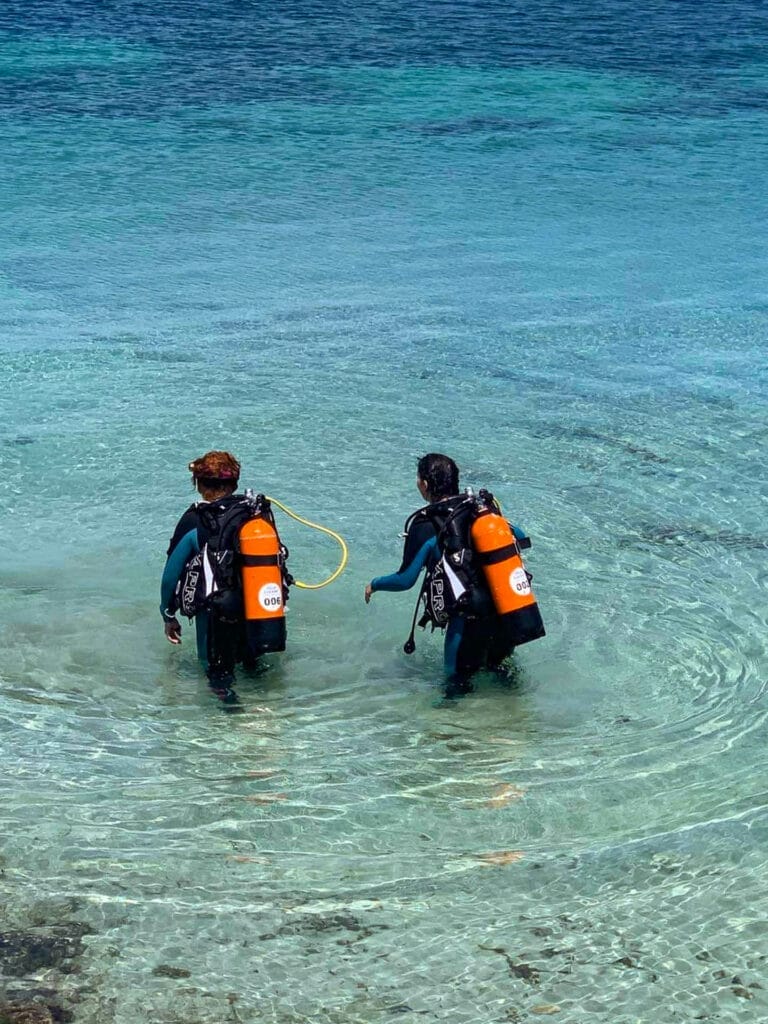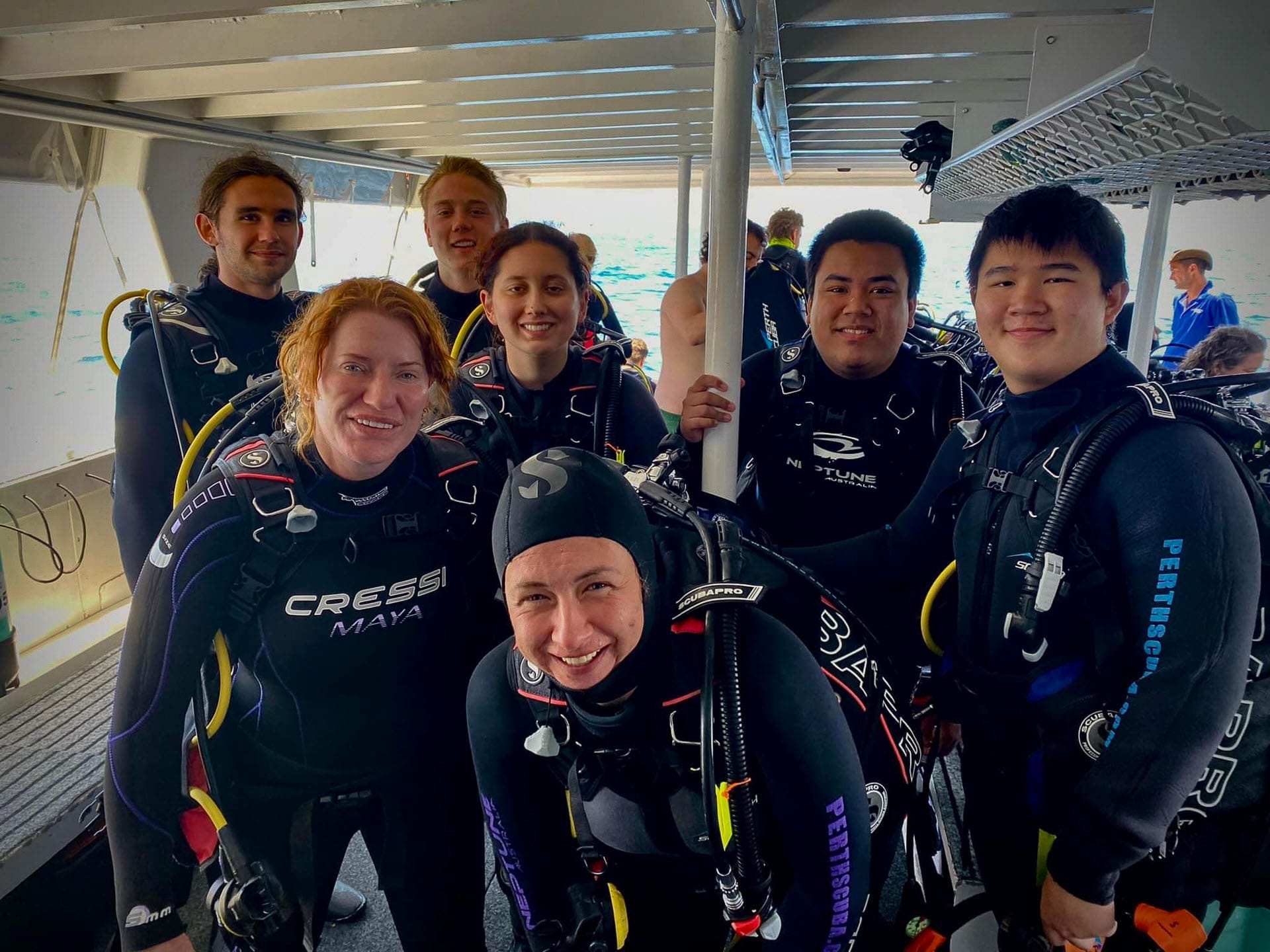If you happen to’ve ever contemplated taking on scuba diving, however aren’t positive whether or not it’s for you, Explorer Jasmine’s damaged down the scuba diving fundamentals so you possibly can add it to your journey actions arsenal.
If you happen to dwell in a location with a ravishing shoreline, it’s solely pure to turn out to be fascinated by the underwater world. There are such a lot of completely different choices to benefit from the water from swimming, kayaking, kitesurfing, snorkelling and plenty of extra. However after you’ve explored above the waves, you’ll quickly wish to get beneath them.
There’s no higher solution to discover the underwater world and stand up shut and private with the attractive marine life than scuba diving. Diving is exhilarating, mildly scary, and completely breathtaking for those who’re keen to make the leap under the water to expertise a brand new world.
What’s SCUBA diving?
SCUBA (Self-Contained Underwater Respiratory Equipment) diving is an exercise wherein you swim underwater utilizing an oxygen tank to discover beneath the ocean. It’s at present loved by 4-6 million individuals globally.
The sensation of weightlessness, a sensation just like flying, is what makes the game so well-liked, with vacationers touring throughout the globe to discover well-known dive sights. The objective of scuba diving is to expertise, however not disrupt, life beneath the ocean.
Originating in 1943 when Jacques-Yves Cousteua invented the aqualung, trendy scuba diving has gone by many years of scientific invention to turn out to be the protected follow it’s at the moment.
There are numerous kinds of scuba diving, with the commonest being leisure scuba diving wherein individuals embark on the exercise throughout holidays or as a pastime.
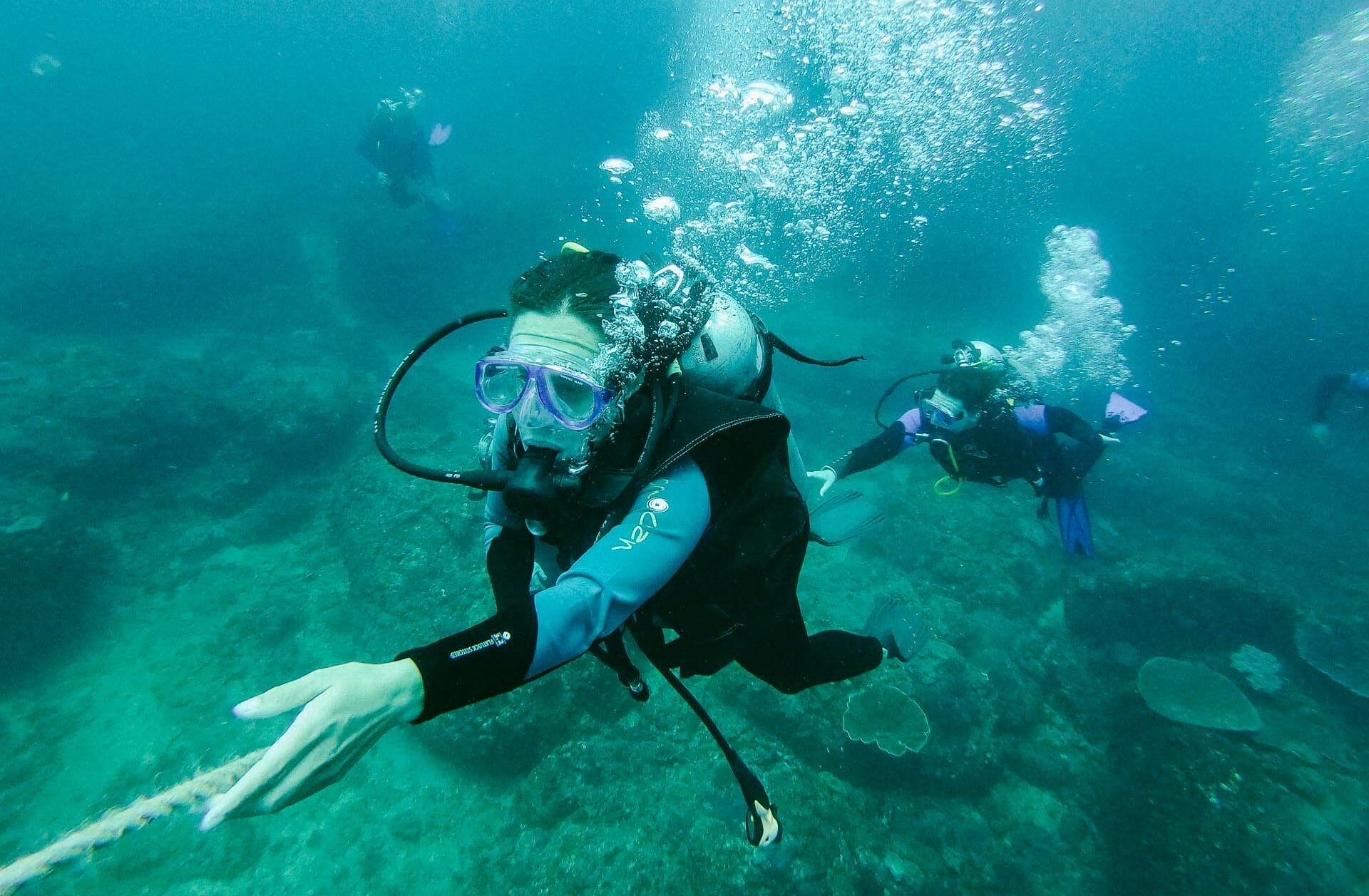
Go on a guided tour if you wish to attempt scuba diving out, you don’t have to be licensed | @claire__dalton
In spots the place there may be an abundance of nice dive websites, comparable to in Western Australia, it’s frequent that many locals are common seasonal divers.
The right way to Get Certified for Scuba Diving
Scuba diving can’t be carried out with out correct coaching. Globally, PADI (the Skilled Affiliation of Diving Instructors) is essentially the most recognised dive coaching organisation.
The primary certification a diver receives is the PADI Open Water Diver, which qualifies customers to dive recreationally as much as 18m. Throughout this course, college students are required to finish complete on-line e-learning earlier than they’re capable of get into the water.
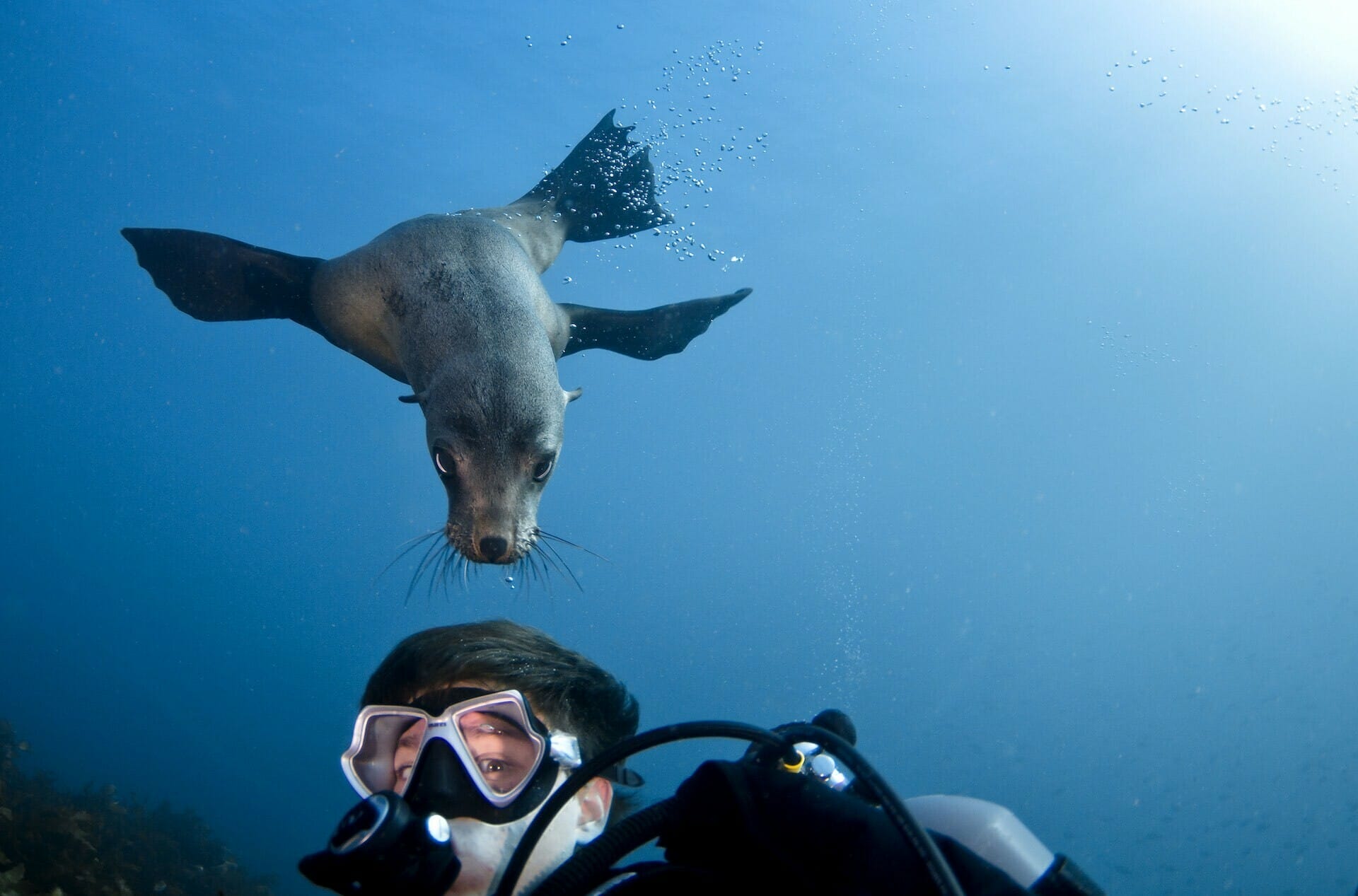
Earlier than you hang around with seals, you gotta do some coaching above sea stage | DNSW
Following that is three days of diving coaching, normally beginning first in a pool to be taught the essential strategies of getting ready tools, mastering buoyancy, and performing crucial abilities, earlier than college students transfer to an open water setting.
Over the ultimate two days, college students will full 4 dives in open water and should succeed in any respect PADI necessities to achieve qualification.
Following completion of the Open Water certificates, college students can then progress onto superior coaching programs such because the Superior Open Water, wherein qualification will increase to 30m.
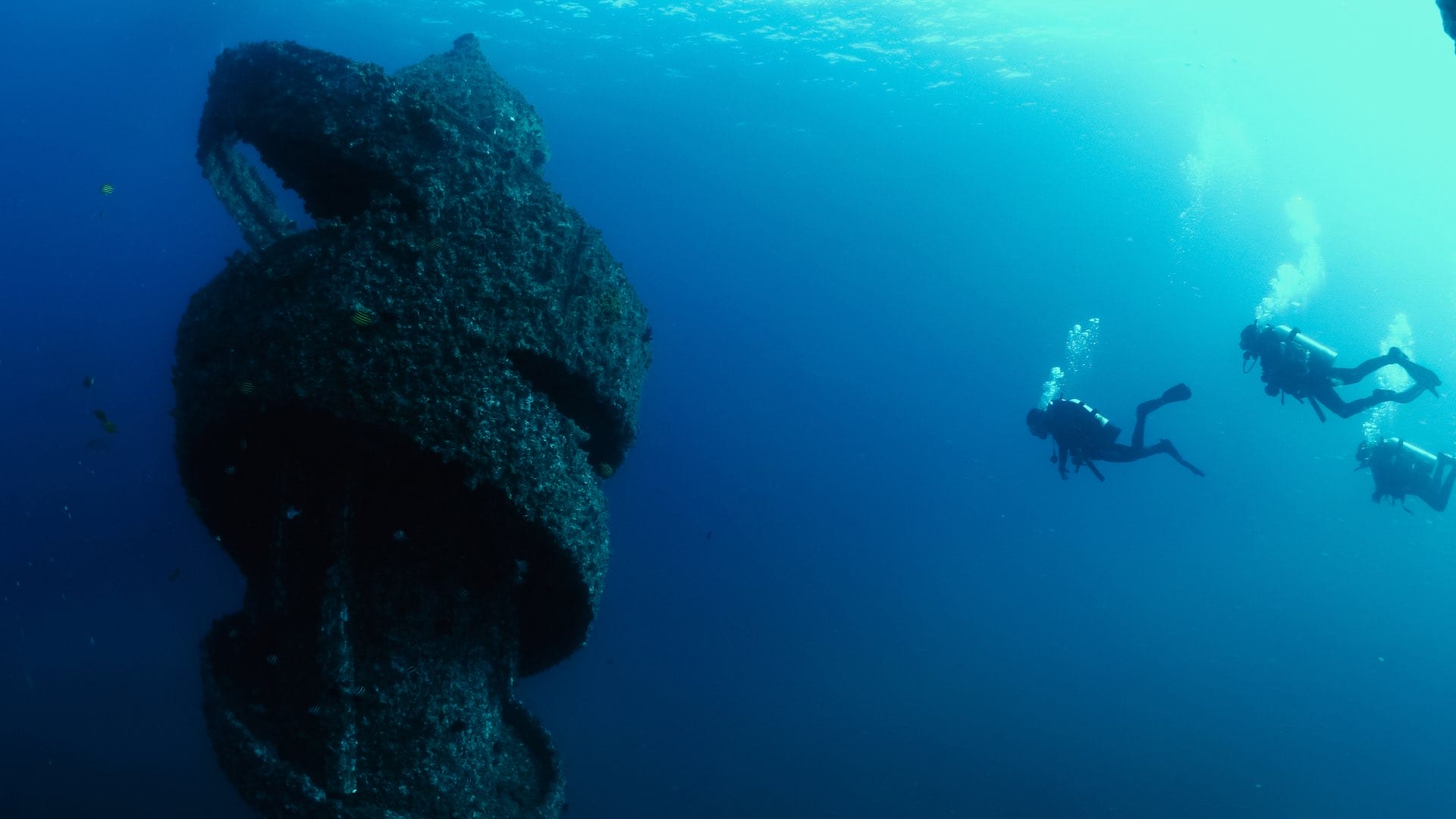
And shortly sufficient you’ll be out exploring the massive blue! | Vacation spot Gold Coast
Past this are quite a few specialised programs like shipwreck diving, nitrox diving, cave diving, and extra.
The very best certificates for a non-professional leisure diver is Grasp Scuba Diver, which requires completion of 5 specialised programs and 50 logged dives to finish. Nearly all of leisure divers solely ever full their superior certificates.
Western Australia has a variety of dive centres that educate PADI-accredited programs.
Important Gear for Scuba Diving
It’s vital to put on the right gear whereas scuba diving to make sure security.
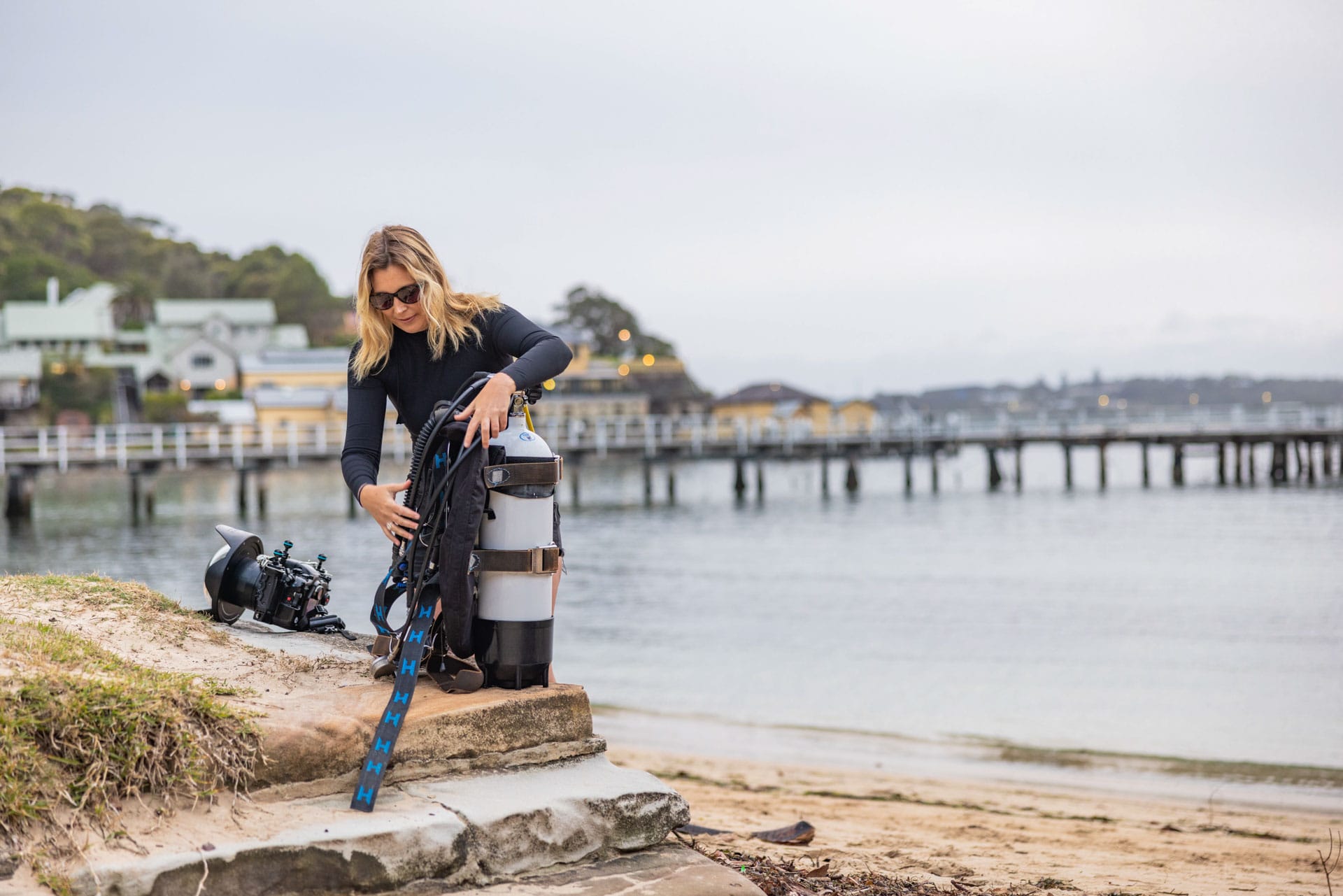
It’s not precisely essentially the most minimalistic exercise | @grumpyturtlefilms
BCD (Buoyancy Management Gadget)
A BCD does precisely as described, it controls buoyancy and provides divers management within the water. Controlling buoyancy is significant when diving because it’s vital to regulate a gradual descent, keep a buoyant place underwater, and a gradual ascent. Essential for each diver, consider a BCD as a lifejacket that helps you go up and down safely.
The Scuba Professional Hydros Professional BCD is a well-liked and dependable decide.
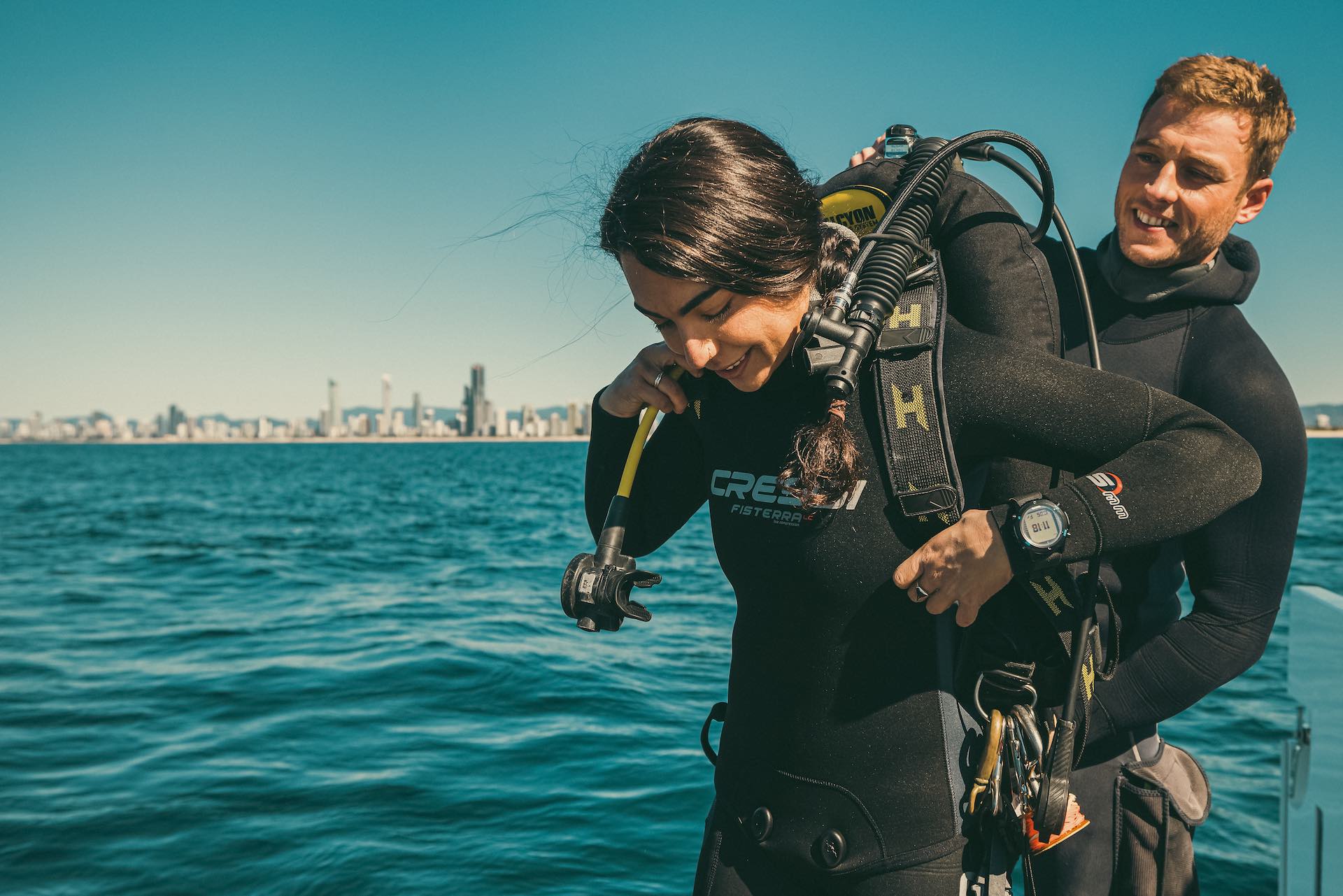
Strapping on the BCD pre-drive | Vacation spot Gold Coast
Regulator
A regulator delivers air out of your scuba tank to you safely. Related to the air cylinder, regulators include a principal and spare mouthpiece in case of emergencies or malfunctions underwater.
Masks
A masks covers the eyes and nostril of a diver and permits them to see clearly underwater and stops them from inhaling water. An important piece of apparatus for any underwater exercise, dive masks come in several shapes, sizes, and lenses.
Cressi have a incredible vary of dive masks.
Snorkel
A tube which you can breathe by whereas retaining your face underwater. Not to be used deep beneath the water, however as a substitute if you’ve reached the floor, divers maintain snorkels hooked up to their masks swimming above the floor.
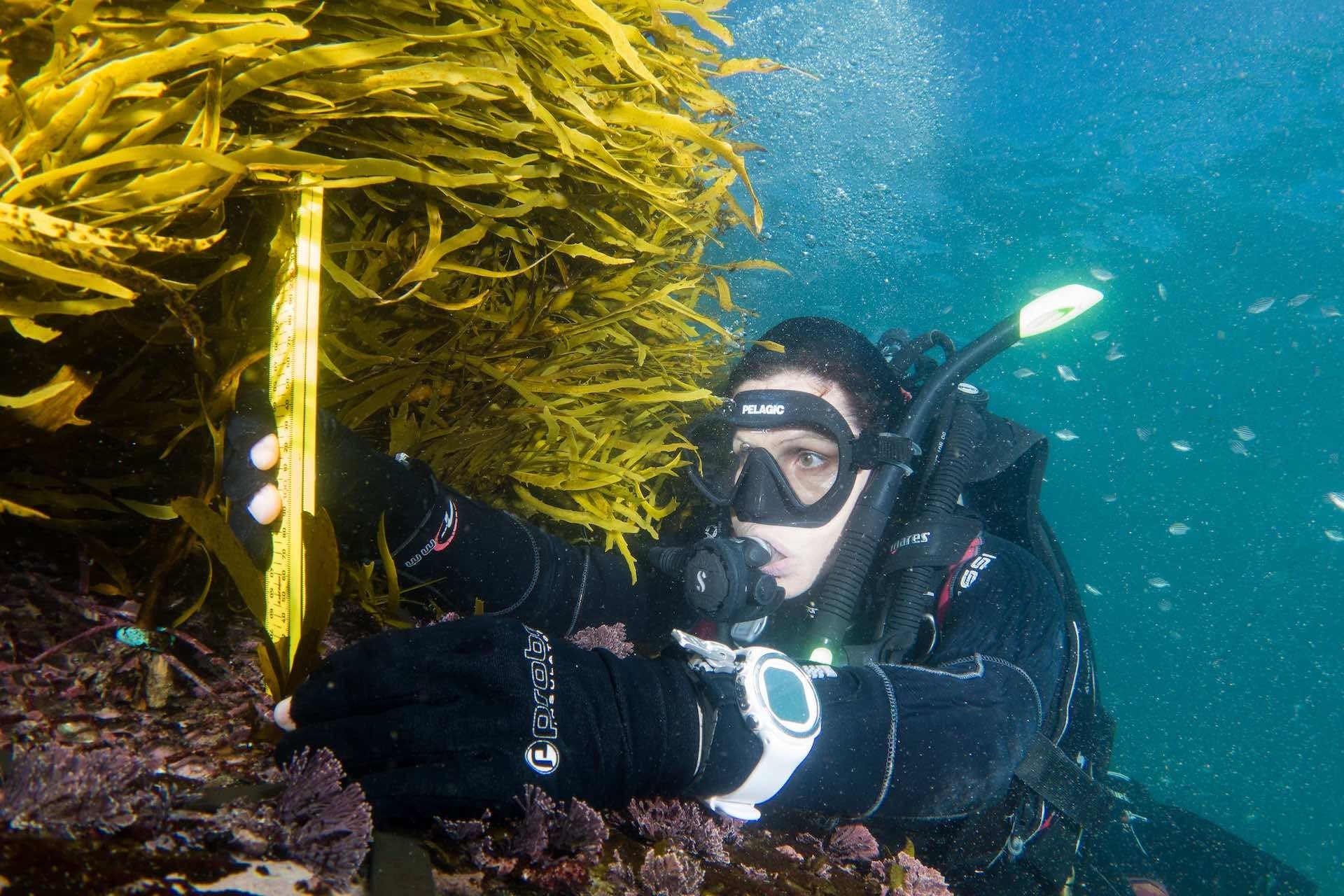
Regulator and masks is on the face whereas the snorkel hangs out the facet | @turnbull.john
Wetsuit
A full or half-body swimwear swimsuit worn to supply thermal safety whereas moist. Accessible in several textures, thickness, and kinds, wetsuits are crucial for each diver to take care of a protected temperature and defend in opposition to the weather underwater.
Fins & Boots
Fins are equipment in your ft that support motion beneath and above water. There are two kinds of fins, full-foot or open-heel. Open-heel fins require you to put on boots beneath (sort of like socks!) and are extra typically utilized in diving. Dive boots have a thick sole and defend from potential risks your ft may (actually) run into.
Dive Pc
Dive computer systems, or dive watches, are units worn by divers which give real-time dive data comparable to time and depth. They’re vital in measuring security stops and decreasing the danger of decompression illness (DCS).
Weights
Dive weights are small weighted plates added to a divers BCD or dive belt that counteracts extra buoyancy and permits divers to descend simply and keep buoyancy underwater.
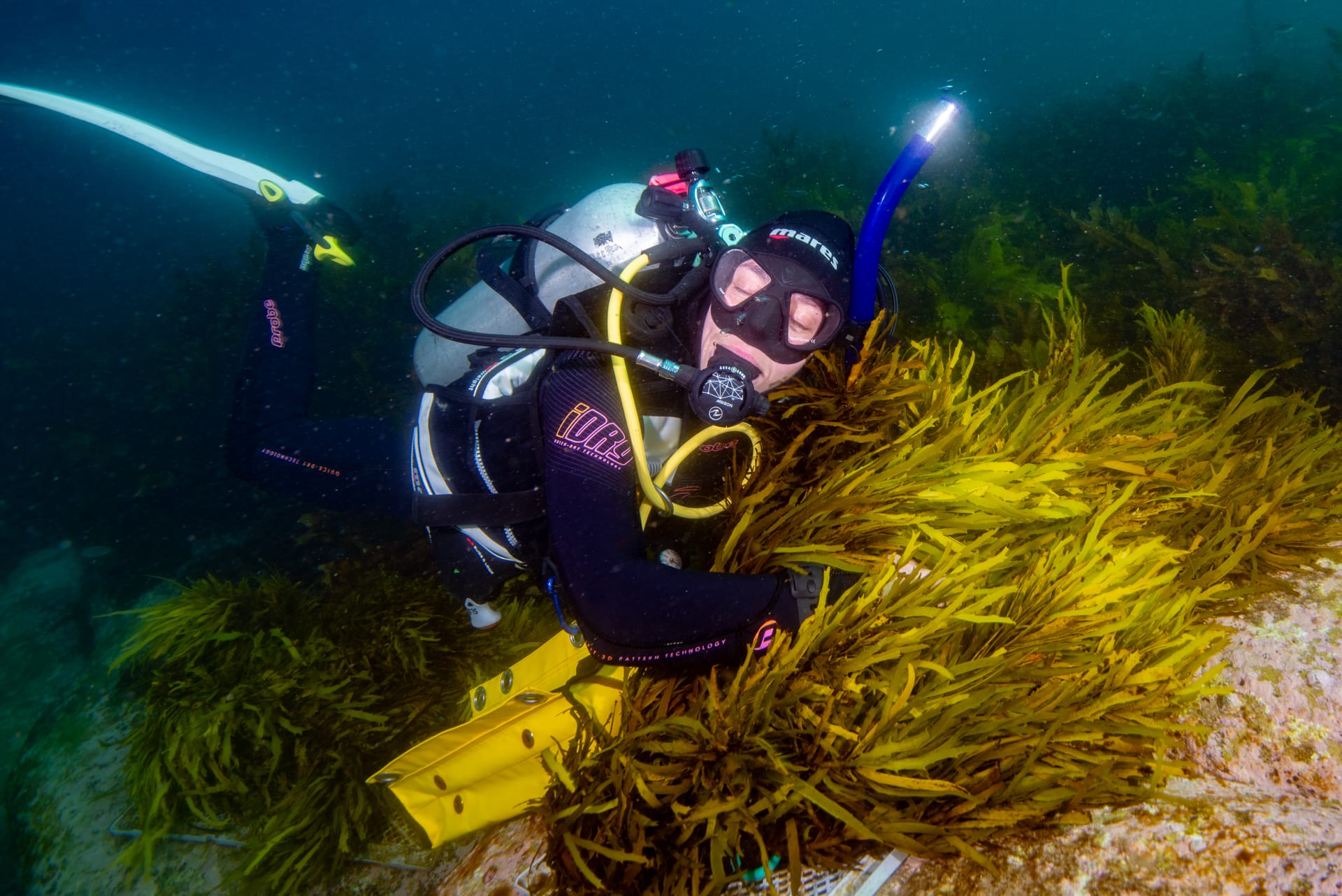
And just about the entire equipment and caboodle in motion! | @tomburd
Scuba Diving Suggestions for Inexperienced persons
- All the time double-check your scuba gear. Whether or not it’s your individual gear or rent gear, comply with the required security checks previous to getting into the water. Don’t skip your security steps
- Observe your environment whereas underwater however by no means contact or take away marine life. Doing so may be dangerous to the atmosphere and harmful for your self
- All the time dive with a buddy and plan out your dives. Make sure that to remain collectively all the dive and follow the dive plan
- Place a small drop of child shampoo (or spit) inside your masks then totally rinse it out as a defogging method
- By no means maintain your breath underwater. All the time keep calm and even respiration
- All the time maintain a frequent eye in your air gauge. Be sure to have a protected quantity of air to finish your security cease and floor
- If you happen to begin to really feel unusual, abort the dive instantly
- If you happen to’re having hassle equalising your ears underwater, kick just a few ft up and check out once more from the next depth
- Know what the essential scuba hand indicators imply:
- Thumbs down: Descend
- Thumb up: Ascend
- Hand up: Cease
- Circle: I’m OK
- Level to ear: Ear hassle
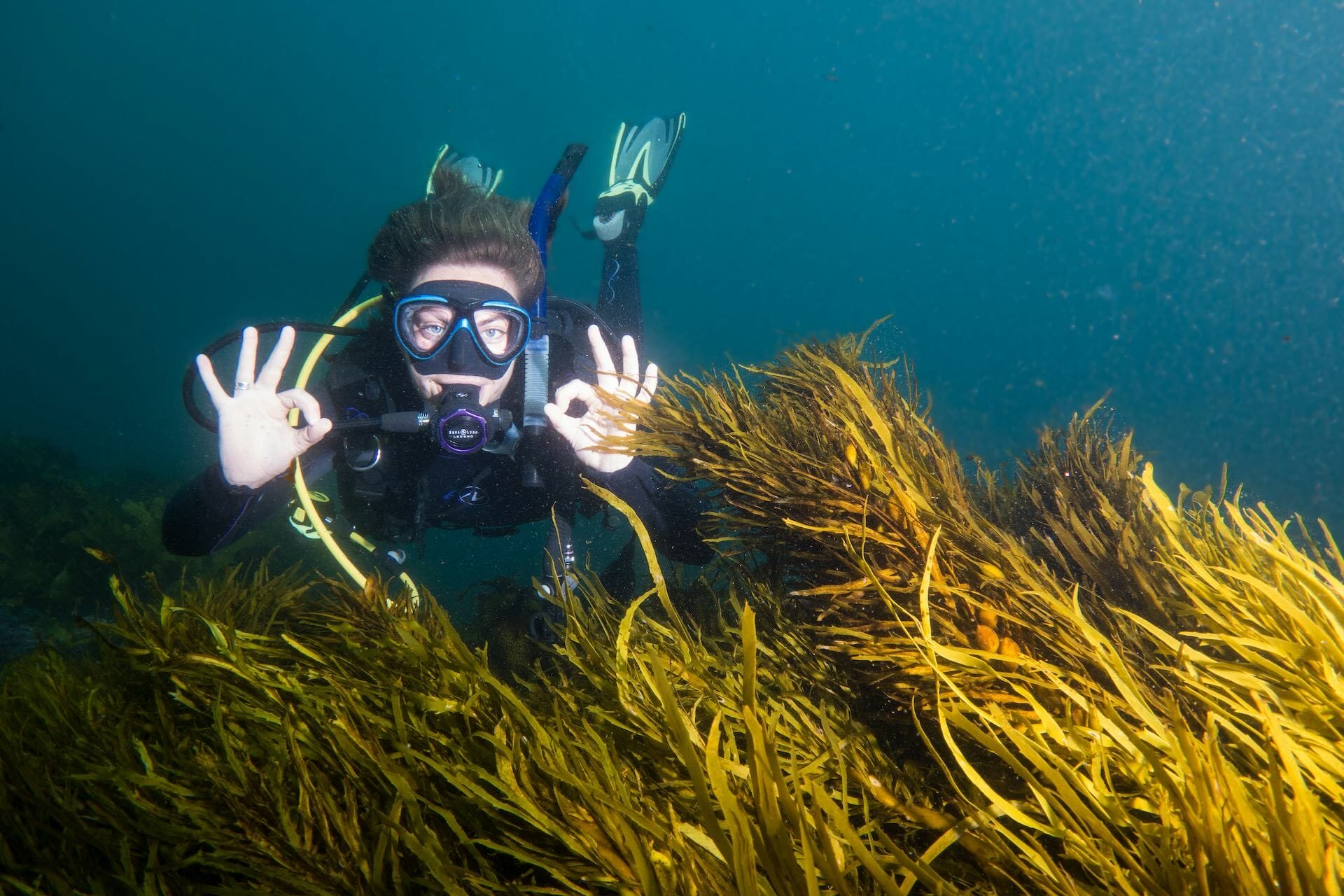
Do that for those who’re having a superb time! Solely thumbs up if you wish to ascend | @turnbull.john
5 Widespread Errors Made When Scuba Diving
- Making an attempt too exhausting to equalise your ears. It’s essential to equalise your ears in order that the water stress doesn’t trigger harm. Equalise slowly and don’t drive it. If you happen to’ve tried all the things and may’t equalise, abort the dive
- Ascending to the floor too rapidly. Ascending too rapidly may be exhausting to decelerate and places you liable to DCS. Management your ascent slowly in order to not over increase your lungs. Observe your dive pc and stay calm
- Touching marine life. There are lots of harmful creatures within the ocean. It’s safer for you and them that you just maintain your palms to your self
- Not checking your air. If you happen to don’t have sufficient air to floor you’ll be in some actual hassle. Commonly test your gauge
- Speeding. Take issues good and gradual and comply with your security procedures. If you happen to rush you can also make errors so keep relaxed
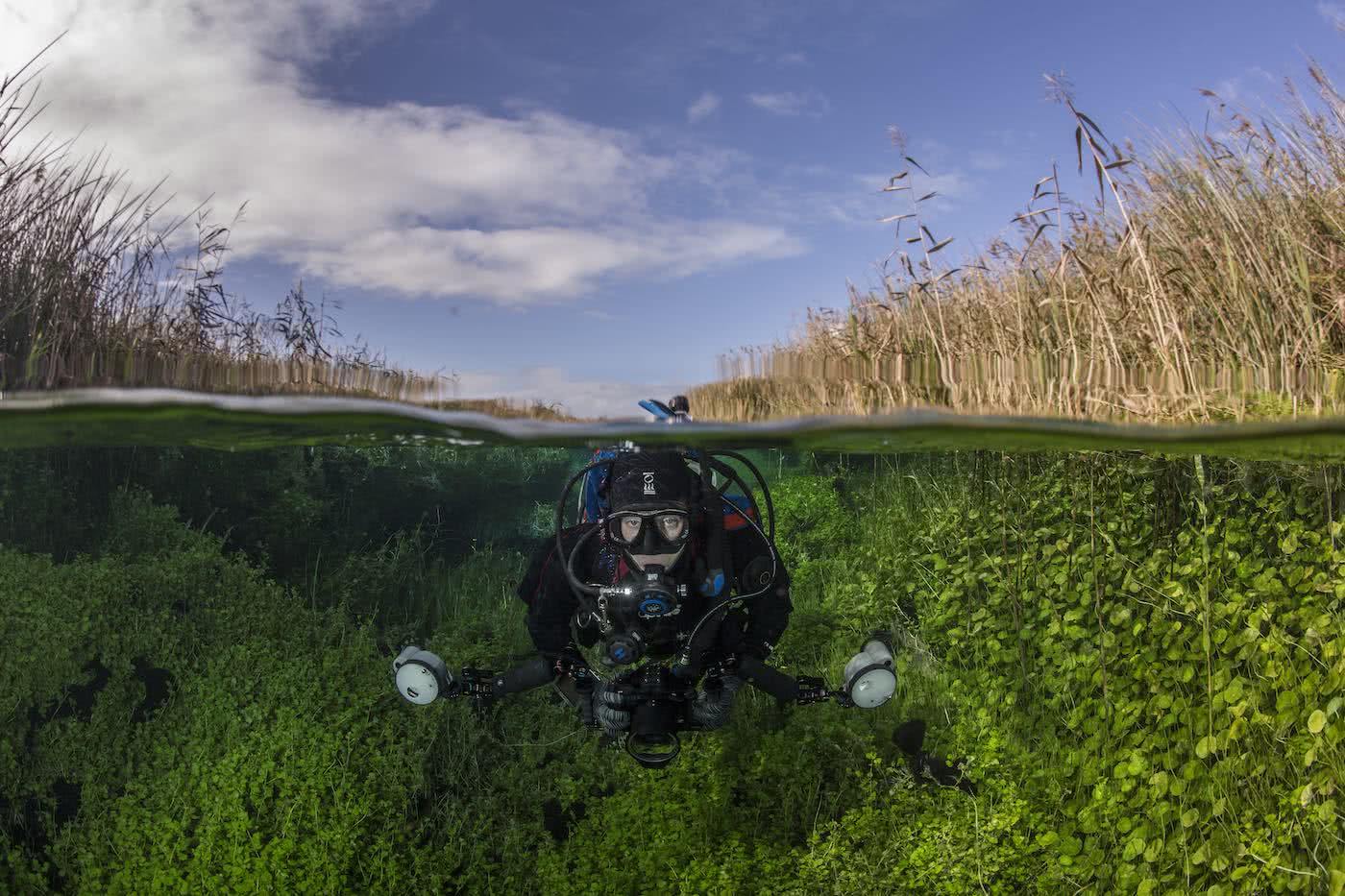
And most significantly, benefit from the stunning, alien world that lives underwater! | @scott.portelli
FAQs of Scuba Diving for Inexperienced persons
How a lot does it price to get certified?
Usually, the PADI Open Water course ranges from $595-695 (AUD), with superior and specialised programs costing comparable, if not much less.
Do I want to have the ability to swim to scuba dive?
Sure, you’ll have to be a assured swimmer to scuba dive.
Is scuba diving harmful?
Usually, no though there are dangers related to the exercise because of defective tools and human error. Dangers vary from dehydration to decompression illness and, in uncommon instances, demise.
Characteristic picture by Vacation spot Gold Coast

